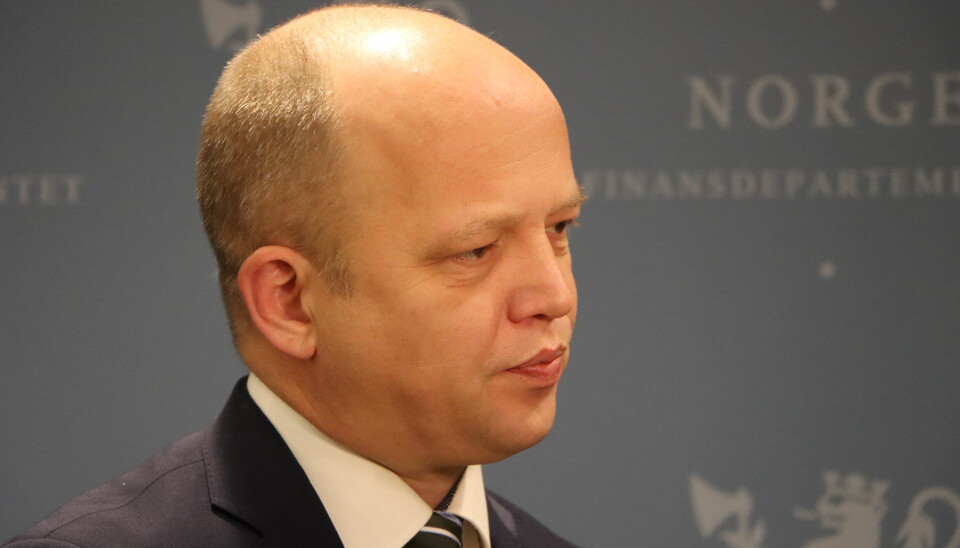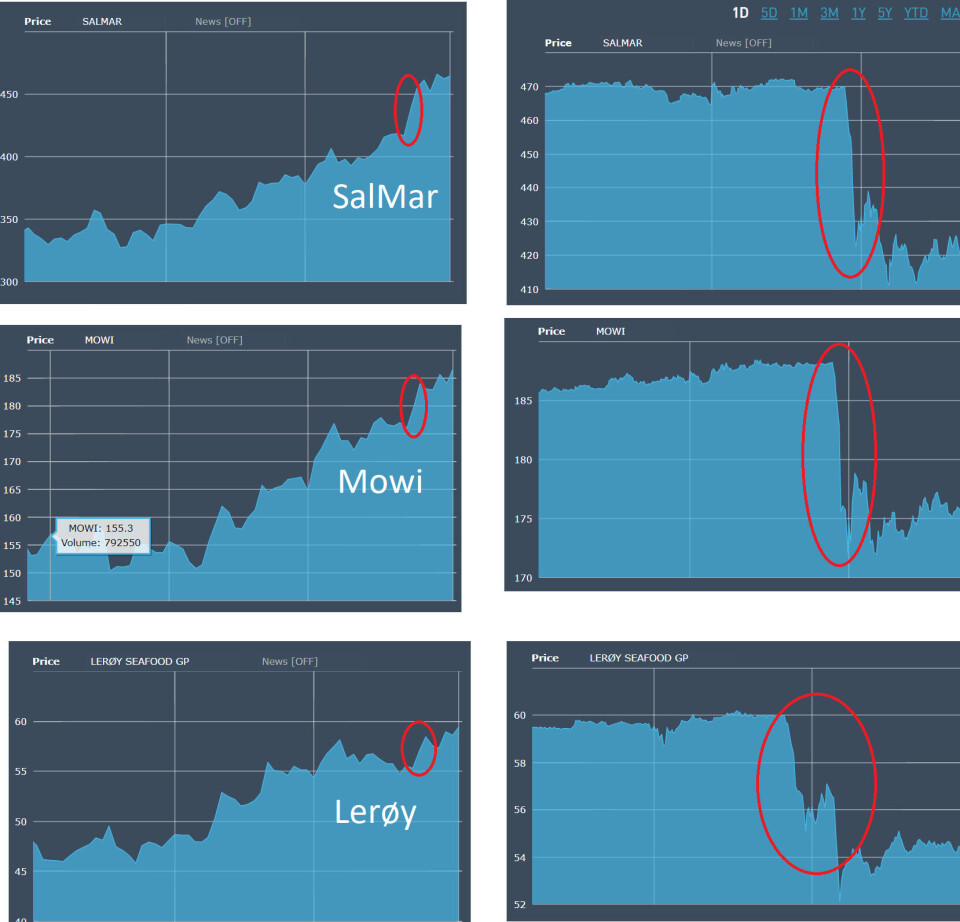
Norway finance minister sends salmon company share prices tumbling again
Salmon tax WILL be 40%, says Vedum
The share values of the Norwegian companies that own Scotland’s two biggest salmon farmers slumped yesterday after Norway’s finance minister Trygve Slagsvold Vedum dashed hopes that a proposed 40% tax on the industry would be reduced.
Shares in Mowi, which expects to harvest around 65,000 gutted weight tonnes of salmon in Scotland this year, and in SalMar and Lerøy, which jointly own Scottish Sea Farms, fell by around 7%.
For Mowi and SalMar, Vedum’s announcement resulted in a dramatic reversal of a steady climb in their values over the last few days.
Different tax model
At the end of January, Geir Pollestad, chair of the Norwegian Parliament's finance committee and a member of the Centre Party that Vedum also belong to, said in an interview that the way taxable income would be calculated would be different to the government’s initial proposal which relied on the spot price, a value that is not achieved for downgraded fish or those sold on fixed contracts.
Several large brokerage houses have also recently estimated that the tax rate will be adjusted down from the original proposal of 40% to 15-20% after signals from politicians and calculations of tax revenues.
SalMar chief executive Frode Arntsen this week told Fish Farming Expert’s Norwegian sister site, Kyst.no, that the signals of a lower tax rate had led both SalMar and the industry to reduce the number of redundancies prompted by the initial tax plan.
No softening
However, a statement by Vedum in business newspaper Finansavisen yesterday sent salmon shares on the slide again. Vedum pointed out that the 40% tax model should apply, and not an alternative based on raising annual income of NOK 3.8 billion.
“We do not want a model which means that in a year with very low earnings you are taxed the same amount (as in better years), but that you should be taxed according to your ability (to pay, based on earnings). It is a good principle and that is what the ground rent tax (salmon tax) should add up to,” the minister told Finansavisen.
Alexander Aukner, seafood analyst at DNB bank, told E24 website that there are new signals from Vedum that the softening implied by Pollestad will not materialise.
“You could probably say that it would have been beneficial to have a little more coordinated communication in this matter. There are great values at stake here and it is important what is communicated,” Aukner said.
























































